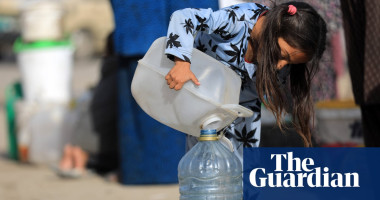Women and girls suffer first when droughts hit poor and rural areas, says UN
World water development report warns that access is major source of conflict between countries
Women and girls are the first to suffer when drought strikes poor and rural areas, and water strategies around the world must reflect this, the UN has said in a plea to countries to mend conflicts over water resources.
Stress on water resources, which is being exacerbated by the climate crisis, as well as overuse and pollution of the world’s freshwater systems, is a large source of conflict, according to the latest UN world water development report.
The impacts of sharing water, and the possibilities of harnessing cooperation over water resources into wider peace strategies, are often overlooked, the report’s authors found. Better cooperation over freshwater access would also play a role in improving the lives of women and girls.
Women and girls carry primary responsibility for water collection in poor and rural areas around the world, and a lack of safe sanitation is a factor in girls dropping out of education, and increases their vulnerability and that of women.
